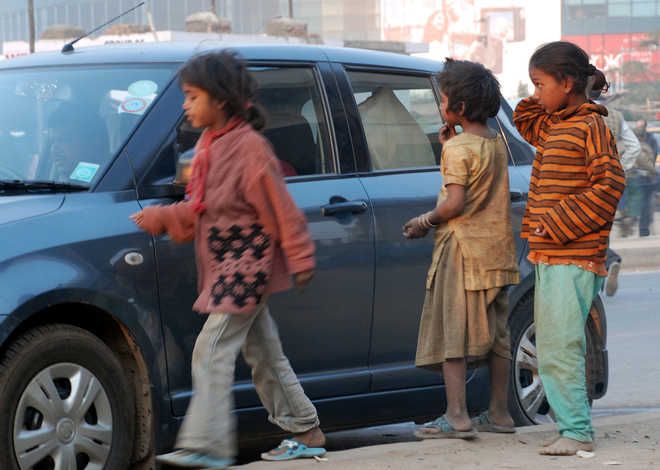Difference between Article 35A and 3A of J&K Reorganisation (Adaptation of State Laws) Order 2020: Article 35A of the Indian Constitution was an article that empowered the Jammu and Kashmir’s state legislature to define “permanent residents” of the erstwhile state and provided employment opportunities only to those permanent residents.
On the other hand, Section 3A of the J&K Reorganisation (Adaptation of State Laws) Order 2020, under the J&K civil services (decentralisation and recruitment) Act, defines “Domicile” for the purpose of appointment to the post carrying a pay scale not more than Level-4 (25500) and provides employment opportunities in Level 4 only to domiciles of Union Territory of J&K. (S. 5A read with S. 3A)
Difference Between Domicile & Residence:
Domicile is where one lives with the intent to stay; it refers particularly to a state, county, and city.
Residence is, broadly, where one’s home is, or the building itself. One may have many residences but only one domicile.
What New Act Does?
- It provides employment on the basis of domicile and not on the basis of residence, as it used to be earlier.
- According to the new law, jobs up to lowest level of non-gazetted rank are reserved for Jammu and Kashmir domiciles.
- The level 4 includes posts like Junior Assistant, Constable, which is considered as the lowest category of non-gazetted posts.
- This indicates domiciles of J&K UT would have exclusive right on class-4th and non-gazetted posts to be advertised by the Services Selection Board from now on wards. All Indian citizens, including J&K domiciles, would be eligible for remaining non-gazetted and gazetted posts, reported Outlook.
- This further implies, the new law only protects class 4th jobs. In other words, reservation to people of J&K is only with respect to class 4th jobs.
- The non-gazetted as well as gazetted posts are available to all Indian citizens.
- Before August 5, all jobs in erstwhile state of J&K were exclusively reserved for permanent residents of the State.
- It opens gateway to outsiders (non-permenant residents) to apply for jobs in J&K.
- J&K Civil cadre already being done away with, and 50% cap for local recruits further reduced to 33%, it opens gateway to IAS officers across India to work in J&K.
- After every 15 years, there will be new domiciles who will be able to apply for jobs in already job straining state.
- Children of government officials who served in UT for ten years, even if their children reside outside J&K will be eligible for level 4 jobs.
- Any person who studied in J&K for seven years and appeared in board exams while being enrolled in any of the educational institutions in J&K is also a Domicile.
- Domicile certificate will be issued by Tehsildar. Earlier, Permeant Resident Certificate (PRC) was issued by Deputy Commissioner.
- Deputy Commissioner will be appellate authority for domicile certificate purposes.
- The immediate fallout would be on the demographics of the region.
Now who is a domicile for the purpose of employment as per the act:
- Any person who has resided for a period of fifteen years in the UT of J&K.
- Any person who has studied for a period of seven years and appeared in class 10th/12th examination in an educational institution located in the UT of J&K.
- Children of those central government officials, all India services officers, officials of PSUs and autonomous bodies of central government, public sector banks, officials of statutory bodies, officials of central universities and recognised research institutes of central government who have served in Jammu and Kashmir for a total period of ten years or children of parents who fulfil any of the conditions in sections.
The new rules have also been extended to children of those who fulfil the above mentioned criteria even if they do not live in J&K, reported The Print.
- Children of such residents of J&K as reside outside UT of J&K in connection with their employment or business or other professional or vocational reasons but their parents fulfill any of the conditions provided earlier.
- Persons registered as a migrant by the Relief and Rehabilitation Commissioner (Migrants) in the UT of J&K, will also be included in the definition. (Emphasis supplied)
Who is a domicile?
Under the law, the UT domiciles have been defined as those who have been a resident for a period of 15 years in the UT or have studied for a period of seven years and appeared in Class X/XII exam in a registered educational institute in J&K. The domiciles also include children of central government or central government aided organizations, PSU who have served in J&K for a period of 10 years.
To expedite the process Tehsildars within their territorial jurisdiction have been authorised to issue domicile certificates. The govt of J&K UT has also been empowered to notify any other officer to be the competent authority for the issuance of a domicile certificate.
Previous allocations under Article 370 And 35A
Previously under Article 35A and the provisions of special status of J&K formed the benchmark for defining domiciles of J&K. Article 35A empowered J&K assembly to define a J&K resident. The J&K constitution which was adopted on 17 Nov 1956 defined a permanent resident of J&K who was a state subject as on 14 May 1954 or who has been a resident of state for 10 years and has acquired an immovable property in the state. The implication of the law was suffered by the communities which despite being a resident of J&K for more than 70 years were denied the status of a ‘permanent resident’. The privilege of being a domicile of J&K was ltd to a few special category as defined in Art 35A
Behind the veil of propaganda
The domicile law in J&K has been subjected to immense controversy and criticism. The manner in which the various narratives of Settler-Colonialism/Occupation have been minted displays an administered approach to propaganda. The benefits of this law have completely been by-passed in this mayhem and require attention to understand the decision taken on 5 August 2019.
Industrial sector
The amendment in domicile law is a catalyst for industries and MNCs for establishment of prolific economic ventures. According to government figures, the industrial setup has been running in losses owing to the lack of investment and strict laws relating to ownership of land in J&K. The dilution in domicile status will have a direct effect on the purchase and ownership of property in J&K. The ease in procurement of land will draw more investors in the state boosting the economic structure of J&K. The private sector in J&K is in a nascent stage owing to adverse internal security situation and frequent shutdown calls by separatists. With the inflow of revenue boost to industrial apparatus will be possible.
Central Government Employees
The central government employees posted in J&K were at gross disadvantage in a number of aspects as they could not reap benefits which were applicable to them in the rest of the country like preferences of local domicile for admission in professional colleges and benefits like scholarships for their children. This acted as a deterrence and rationale to seek transfer to any other region at the first opportunity.
The amended domicile law will encourage Central Government employees for prolonged tenures, thereby recuperating the administrative structure of J&K. In 2017, the Centre for Media Studies (CMS) conducted a research regarding the corruption in 20 states of India. In its study CMS placed J&K amongst the most corrupt states in India. The study claimed that more than 33% respondents stated that the state govt is not ‘committed at all’ towards reducing corruption in public services. With more better competition for the state services the quality of public servants will expedite and the administrative structure of the state will improve.
Tourism Industry : Driving force
Tourism industry is an economic facilitator and emp generator in J&K. The sector has the capability to create large-scale employment for diverse sections of the society from the most specialized to the unspecialized workforce. The state has a tremendous scope in tourism industry which demands additional hotels, commuting services like Ola and Uber, Food and Beverage ventures and other allied business. Till now the real scope of Tourism has not been capitalised in J&K which will be fielded with influx of investments and better qualified professionals.
A generation left unemployed
In June 2019 the unemployment rate in J&K was at 15.89%, the lowest in the country during that period. Today the number of educated unemployed youth is running in lakhs due to lack of employment avenues. The youth in J&K is forced to migrate to rest of India leading to drain of human resources. According to government estimates 23000 posts have been lying vacant in different government departments including 1278 gazetted and 3352 non-gazetted. This is a disturbing trend and points to the inimical designs of terrorism and indoctrination. The social fabric will be integrated under the new domicile law as equal representation to border area residents and minorities will lead to increase in competition. This will yield professionally competent candidates and optimum utilisation of vacant government posts.
West Pakistan refugees
As per official figures of government there are approximately 4 lakh West Pak Refugees amounting to just 2.5 % of the entire population of J&K. These refugees are mainly Hindus and approximately 80% of them belong to Schedule caste. They had migrated into J&K during 1947 from Sialkot. Despite being Indian citizens they were denied permanent resident status of J&K. WPR were not entitled to any rights and privileges as enjoyed by a permanent resident of J&K. The new domicile rule is a beacon of hope for them residing in parts of Jammu, Udhampur, Kathua, Akhnoor.
Marginalized communities of J&K
There are approximately 1.5 lakh members of Valmiki community settled in various parts of J&K primarily in Jammu region. The community members were already part the state as permanent residents since 1957-58. However they could be employed only as hygiene and sanitation workers in the state.
Granting them domicile status would have no effect on state demography as projected otherwise by many factions. Contrarily the community will be able to enjoy diverse employment opportunities in the state administration.
Similarly there are approximately 11,000 members of Gorkha community which settled parts of Jammu during Dogra rule in 19th century. They were not recognised as permanent resident by the state of J&K and denied employment opportunities in state administration.
The community would benefit from the amended domicile law. Moreover the Gorkhas make up only 0.06% of the J&K population which does not threaten the demographic fabric of Kashmir as propagated otherwise.
J&K is still at large an agrarian economy and thus sees a large influx of migrants as labourers. However the migrants registered by Relief and Rehab Commissioner in the UT of J&K were not admissible to benefits which the labourers in other states of India are generally granted. With the implication of the domicile law, the migrants would be given equal representation in employment avenues in the state.
Parallel laws in other states
There are similar laws existing in states like Himachal Pradesh, Uttarakhand and other hilly region states wherein a non-resident of these states is entitled to procure property with limitation. The perceived notion amongst the Kashmiri population of a certain experiment of ‘Settler-Colonialism’ as advocated by Pakistan sponsored factions is grossly wrong. Introduction of similar rules in J&K is as per existing norms and not as per general perception of J&K being singled out.






